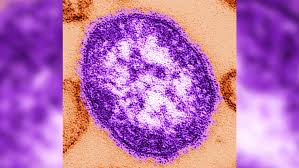Common Causes of Infertility Among Women
-By Dr. Richa Jagtap, Co-Medical Director, ART Fertility Clinics, India Introduction: Infertility is a complex and emotionally challenging issue affecting millions of couples worldwide. When a couple has trouble conceiving after a year of regular unprotected intercourse,

–By Dr. Richa Jagtap, Co-Medical Director, ART Fertility Clinics, India
Introduction:
Infertility is a complex and emotionally challenging issue affecting millions of couples worldwide. When a couple has trouble conceiving after a year of regular unprotected intercourse, they are considered to be facing infertility. Both men and women can contribute to infertility, and in this article, we will focus on some of the common causes of infertility among women.
- Ovulation Disorders:One of the leading causes of female infertility is ovulation disorders. Ovulation is when a mature egg is released from the ovaries, making it available for fertilization. Irregular or absent ovulation can hinder the chances of conception. Polycystic ovary syndrome (PCOS) is a common ovulation disorder characterized by hormonal imbalances that can lead to the formation of cysts on the ovaries. Other factors affecting ovulation include thyroid disorders, stress, excessive exercise, and weight fluctuations.
- Age-Related Infertility:Age plays a significant role in female fertility. As women age, the number and quality of their eggs decline, making it more challenging to conceive. Fertility starts to decline after age 35 and decreases more rapidly in the late 30s and 40s. Advanced maternal age is associated with a higher risk of chromosomal abnormalities, miscarriages, and infertility.
- Tubal Factors:The fallopian tubes play a crucial role in fertility by transporting the egg from the ovaries to the uterus and providing the site for fertilization. Blocked or damaged fallopian tubes can prevent the egg from meeting the sperm, impeding fertilization. Pelvic inflammatory disease (PID), endometriosis, and previous pelvic surgeries are common culprits behind tubal factors leading to infertility.
- Uterine Abnormalities:Structural abnormalities in the uterus can interfere with implantation and pregnancy. Conditions like uterine fibroids, which are non-cancerous growths in the uterine wall, can affect the uterine cavity and hinder successful embryo implantation and development. Uterine polyps, growths attached to the inner lining of the uterus, can also negatively impact fertility.
- Endometriosis:Endometriosis is a painful condition in which the tissue that usually lines the uterus (endometrium) grows outside the uterus, commonly affecting the ovaries, fallopian tubes, and pelvic tissues. Endometrial tissue in abnormal locations can cause inflammation, scarring, and adhesions, leading to fertility challenges.
- Hormonal Imbalances:Hormonal imbalances can disrupt the normal functioning of the reproductive system and hinder fertility. Abnormal levels of hormones such as follicle-stimulating hormone (FSH), luteinizing hormone (LH), progesterone, and estrogen can affect ovulation and the menstrual cycle.
- Unexplained Infertility:In some cases, despite thorough evaluation, the specific cause of infertility remains unexplained. This condition is unexplained infertility, accounting for about 10-20% of infertile couples. It can be a frustrating diagnosis, as there may be no apparent reason why conception is not occurring.
- Autoimmune Disorders:Certain autoimmune disorders can negatively impact fertility. Conditions like antiphospholipid syndrome (APS) and thyroid autoimmune disorders may increase the risk of miscarriage and implantation failure.
- Lifestyle Factors:Lifestyle choices can significantly impact female fertility. Factors such as smoking, excessive alcohol consumption, drug use, poor nutrition, and obesity can affect hormone levels and disrupt the menstrual cycle, reducing the chances of conception.
- Pelvic Inflammatory Disease (PID):Sexually transmitted infections (STIs) primarily cause PID, a condition of the female reproductive organs. If left untreated, PID can lead to scarring of the fallopian tubes and other pelvic organs, resulting in infertility.
Seeking Help and Diagnosis:
If a couple faces difficulties conceiving, seeking help from a qualified fertility specialist is imperative. Fertility specialists conduct a thorough evaluation to identify the specific causes of infertility in the woman, enabling them to develop appropriate treatment plans accordingly.
Treatment Options:
The treatment for female infertility depends on the underlying cause, age, and the couple’s overall health. Some standard treatment options include:
- Ovulation Induction:Fertility medications, such as Clomiphene citrate or letrozole, may stimulate ovulation in women with ovulation disorders.
- Intrauterine Insemination (IUI):IUI involves placing prepared sperm directly into the uterus during the fertile window to improve the chances of fertilization.
- In Vitro Fertilization (IVF):IVF is a highly effective assisted reproductive technology. It involves retrieving eggs from the woman’s ovaries, fertilizing them with sperm in a laboratory, and then transferring the resulting embryos into the uterus.
- Intracytoplasmic Sperm Injection (ICSI):This is an IVF procedure where a single sperm is directly injected into an egg to facilitate fertilization, often used in cases of male infertility or previous IVF failures.
- Egg Freezing (Oocyte Cryopreservation):It involves retrieving a woman’s eggs, freezing them at very low temperatures, and storing them for future use. It is particularly beneficial for women who want to preserve their fertility for various reasons, such as medical conditions, undergoing cancer treatments that may affect fertility, or delaying childbearing for personal or professional reasons.
- Surgery:Surgical procedures are carried out to correct structural abnormalities, remove fibroids or polyps, or repair blocked fallopian tubes.
- Lifestyle Modifications:Adopting a healthy lifestyle, including regular exercise, a balanced diet, and stress management, can positively impact fertility.
Conclusion:
Infertility can be a challenging and emotional journey for couples hoping to start a family. Understanding the common causes of female infertility is essential for early diagnosis and appropriate treatment. With advancements in reproductive medicine, many couples facing infertility can find hope and options to realize their dreams of becoming parents. Seeking support from qualified fertility experts is crucial in navigating the journey toward parenthood. While infertility presents obstacles, the path to parenthood can be achieved with determination, perseverance, and the help of medical professionals.






